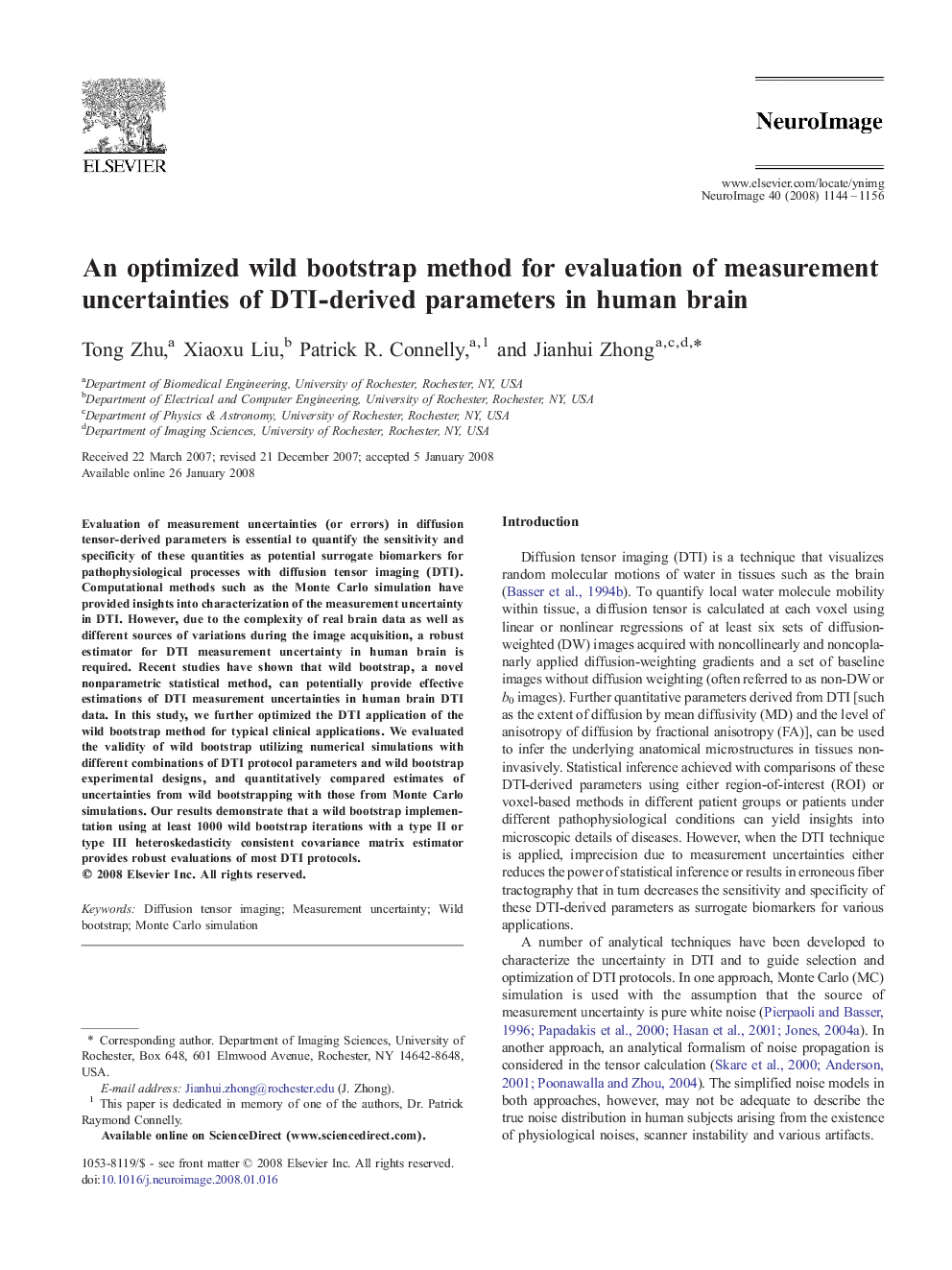| Article ID | Journal | Published Year | Pages | File Type |
|---|---|---|---|---|
| 6039649 | NeuroImage | 2008 | 13 Pages |
Abstract
Evaluation of measurement uncertainties (or errors) in diffusion tensor-derived parameters is essential to quantify the sensitivity and specificity of these quantities as potential surrogate biomarkers for pathophysiological processes with diffusion tensor imaging (DTI). Computational methods such as the Monte Carlo simulation have provided insights into characterization of the measurement uncertainty in DTI. However, due to the complexity of real brain data as well as different sources of variations during the image acquisition, a robust estimator for DTI measurement uncertainty in human brain is required. Recent studies have shown that wild bootstrap, a novel nonparametric statistical method, can potentially provide effective estimations of DTI measurement uncertainties in human brain DTI data. In this study, we further optimized the DTI application of the wild bootstrap method for typical clinical applications. We evaluated the validity of wild bootstrap utilizing numerical simulations with different combinations of DTI protocol parameters and wild bootstrap experimental designs, and quantitatively compared estimates of uncertainties from wild bootstrapping with those from Monte Carlo simulations. Our results demonstrate that a wild bootstrap implementation using at least 1000 wild bootstrap iterations with a type II or type III heteroskedasticity consistent covariance matrix estimator provides robust evaluations of most DTI protocols.
Related Topics
Life Sciences
Neuroscience
Cognitive Neuroscience
Authors
Tong Zhu, Xiaoxu Liu, Patrick R. Connelly, Jianhui Zhong,
